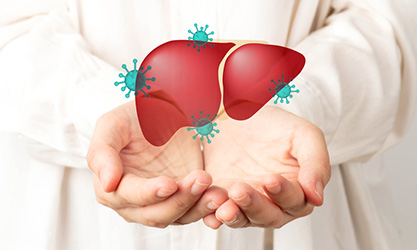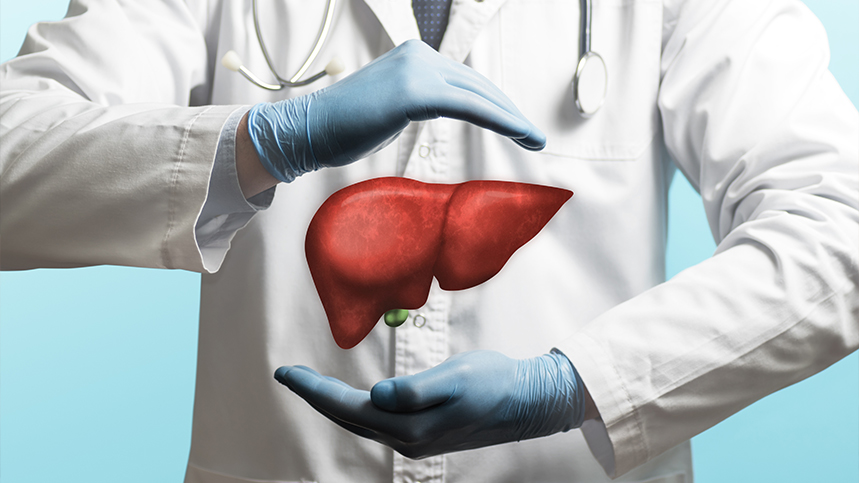Hepatitis is inflammation of the liver. Hepatitis can be a short-term(acute) or a long-term(chronic) infection.
Various types of Hepatitis
The four types of hepatitis are viral, alcoholic, toxic, and autoimmune. Viral hepatitis can be caused by viruses A, B, C, D, and E. Heavy alcohol use can cause alcoholic hepatitis. Certain poisons, chemicals, and medicines can lead to toxic hepatitis. Autoimmune hepatitis occurs when your immune system attacks your liver.
Spread of Hepatitis
Hepatitis A and Hepatitis E spread through contact with food or water that has been contaminated with an infected person's stool. You can also get Hepatitis E by eating undercooked meat.
Hepatitis B, Hepatitis C, and Hepatitis D are spread through contact with the blood of Hepatitis positive person. Hepatitis B and D may also spread through contact with other body fluids. This can happen in many ways, such as sharing drug needles or having unprotected sex. A pregnant woman who has Hepatitis B could give the disease to her unborn child. Therefore, all pregnant women should be tested for Hepatitis B. To prevent its transmission from mother to baby, infants born to mothers with Hepatitis B need to receive treatment with hepatitis B antibody and hepatitis B vaccine within 12 hours of birth.
Signs and Symptoms of Hepatitis
In an acute infection, the symptoms can start anywhere between 2 weeks and 6 months after the exposure. However, in a chronic infection, one may not have symptoms until many years later.
- Fever
- Loss of appetite
- Nausea and/or vomiting
- Abdominal pain
- Dark urine
- Fatigue
- Clay-colored bowel movements
- Joint pain
- Jaundice(yellowing of skin and eyes)
Some people with hepatitis do not have symptoms and do not know they are infected. Early diagnosis and treatment of chronic hepatitis may prevent complications such as cirrhosis (scarring of the liver), liver failure, and liver cancer.
Prevention
There are different ways to prevent or lower your risk of hepatitis, but not all forms of hepatitis are preventable. Autoimmune hepatitis can not be prevented. Following precautionary measures can prevent hepatitis.
- Maintain good hand hygiene, especially before handling and eating food, as poor sanitation and poor hygiene increase the risk of hepatitis.
- Stick to bottled water and skip the ice when eating outside.
- Ensure that proper sanitization methods are used at salons, and tattoo parlours.
- Get vaccinated for hepatitis A and hepatitis B.










